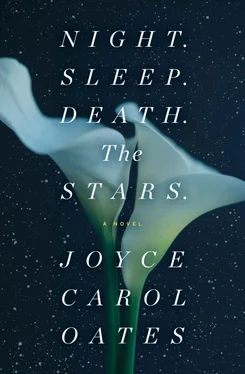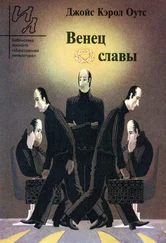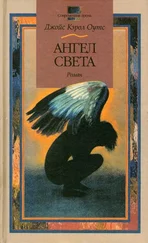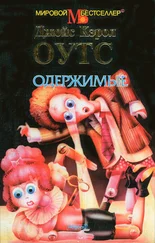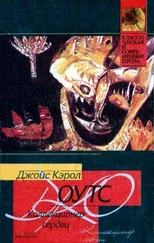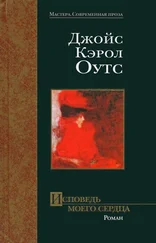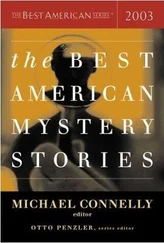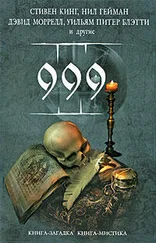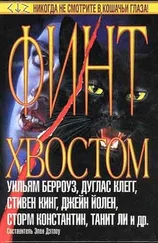None. If.
It is an ambiguous answer, Jessalyn thinks. But no one else seems to notice. For them, the answer is simply none.
PREDATOR, PREY. SURVIVAL, EXTINCTION.“Genetic memory.”
In the Galápagos such divisions are stark. You are a predator, or you are prey. If you fail to survive, you become extinct. You do not exercise what is called, in some quarters, “free will”—rather, you behave by instinct, guided by something called “genetic memory.”
If you survive, it is at the expense of others, who fail to survive. But if you survive, your survival is only temporary in any case.
Indeed, the islands are monuments to death. The bodies of animals are left where they have fallen, for no one in the park service will touch any of the animals. Bones stipple the landscape. In trees there are skeletons of birds, feathered wings trapped in branches. If you look closely on the rocky beaches you see the decaying, desiccated, or skeletal remains of creatures—sea lions, fur seals, turtles, iguanas, shorebirds. On the wind, over-ripe smells of corruption mixed with fresher, cooler air from the open sea.
Jessalyn thinks, dismayed— But what a place he has brought us to, on our honeymoon!
Yet each morning Jessalyn is exhilarated, hopeful. Each morning an astonishing dawn. Each morning new islands, and each island distinct from the others.
She finds herself thinking of the squint-eyed feral cat Mackie. In the Galápagos Mackie would have managed to survive, this is the predator’s landscape.
Missing Mackie, as she misses her faraway home. A perverse nostalgia of which Jessalyn could never speak to another person, certainly not dear Hugo, for those nights of utter misery when the widow took comfort in a feral cat purring in a little nest at the foot of her bed, washing his whiskers clean of the clotted blood of some small devoured creature.
She smiles, recalling. Sophia is overseeing the house in her absence—will Mackie shift his affection to her? Jessalyn feels a pang of loss…
“Come along, darling. D’you need a hand?”
It is not altogether like Hugo, to be so solicitous. Usually, Hugo encourages Jessalyn to blunder along as best she can in such rough circumstances; he is a firm believer in what he calls women’s emancipation —the emancipation from femininity, which is weakness and dependency upon men, which is a trap.
“Thank you, Hugo! I’m fine.”
Not entirely true but uttering fine provides a certain small measure of satisfaction in this inhospitable place.
Jessalyn and Hugo have been assigned to the Frigate dinghy, which is one of the earliest to depart from the Esmeralda . At an hour of the morning when the air is still porous with mist and the tropical sun is just burning through layers of luminous cloud. And always there is wind.
Sixteen passengers in the dinghy. And the tour guide, who introduces himself as Hector—(his surname, Jessalyn cannot quite hear)—who has been a guide in the Galápagos National Park for nineteen years.
Hector is terse in his manner though friendly-seeming, courteous; carrying himself with a sort of military bearing, in the khaki Galápagos Park uniform: long-sleeved shirt, shorts to the knee, hiking boots. He informs the group that he is of Kuna Indian descent from the Kuna Yala archipelago, with a degree in evolutionary biology from the University of Ecuador; his particular interest is the ecology of coastal plant communities in the islands.
From her reading Jessalyn knows that their guide must be a descendant of Spanish holocaust survivors. A surpassingly ugly history, the ways in which the sixteenth-century Spanish conquistadores plundered the continent that would come to be called Latin America, wiping out most of the indigenous tribes of Central America in the name of religion—Roman Catholicism. It is striking, it is ironic, that their guide is himself a survivor of a massive near-extinction, a man-caused genocide.
Jessalyn wonders if Hector thinks of himself in those terms. And what does he think of his Caucasian-American charges?
A trip to the Galápagos for eight days is not inexpensive. Hugo has paid for the trip, over Jessalyn’s protests. Even so, it is probable that her older children believe that she is paying for most, or all, of the trip.
Hector tells them of the fragility of ecosystems, that what appears to be solid and permanent is vulnerable to profound change. Introduce a new species of animal, insect, or plant to the Galápagos, and the results can be catastrophic. If plant communities are damaged, insects may be threatened, and creatures (like lava lizards) that prey upon insects may be damaged. Only recently did park authorities rid the islands of several devastatingly intrusive species—cats, rats, goats—at an expense of millions of dollars. European sailors had introduced these animals to the Galápagos in the nineteenth century, and their numbers had multiplied enormously, threatening indigenous species like giant tortoises, penguins, birds.
But how did you get rid of these cats, rats, goats?—Hector is asked by one of the tourists, who sounds startled.
Hector says that the information is included in the guidebook they’d all been issued, if they are interested in details. He assures them, “humane means” were used wherever possible.
However, the Galápagos environment is naturally pitiless. On the average of every four to seven years as many as 60 percent of Galápagos species die of starvation, despite the nutrient-rich nature of this part of the Pacific Ocean.
Overall, as many as 90 percent of all species that have ever lived have become extinct.
Jessalyn is stunned by such statistics. Sixty percent? Ninety percent? It does not seem possible.
She has never been a religious person. Casually, her family had seemed to believe in “God”—a Christian god, benign and abstract, in no way interfering with actual life. The question of “creation” had not engaged her intellectually but she sees now, in the wildly rocking dinghy approaching a rock-strewn shore in the Galápagos, in the Indian guide’s matter-of-fact recitation, how absurd, how pitiful, for human beings to have imagined a special destiny, and a promise of immortality for believers, just for them.
One’s own existence, so small. One’s grief, happiness, love or failure to love—of so little consequence.
In this place in which suicide is a redundancy: a joke.
Beside her, Hugo is peering at his camera, adjusting the lens, with some difficulty in the rocking boat.
Jessalyn kisses the man’s creased cheek. Jessalyn presses beside him, for warmth. Jessalyn asks if he finds the Galápagos overwhelming, or—inspiring?
“Overwhelming,” says Hugo, after a moment. “And inspiring.”
Does he think that human life is so inconsequential, as it appears to be here?
Again Hugo doesn’t answer at once. He is adjusting something on his camera, Jessalyn’s queries are distracting.
“Yes. Or, no.”
“Yes and no?”
“No. But yes.”
Peering into his viewfinder. Adjusting the viewfinder. For the photographer, the viewfinder puts all things that matter into scale.
“SEÑORA? BE CAREFUL, PLEASE.”
What is it?—Jessalyn draws back in alarm.
She’d been about to step on what appears to be a miniature dragon. Seeing the creature suddenly, so camouflaged by its dull-glittering scales it is virtually indistinguishable from the coils of calcified lava beneath it.
On the paths around her, tourists are taking pictures of these large, slow-moving lizards— iguanas . On his long impatient legs Hugo has gone ahead, farther up one of the trails. It is midday, thrummingly warm. They have disembarked upon a volcanic-lava island with minimal, stunted vegetation, overrun with iguanas, smaller lizards, slow-scuttling red crabs. On higher ground, on cliffs overlooking the beach, vividly feathered shorebirds—blue-footed boobies, cormorants, gulls and pelicans.
Читать дальше
